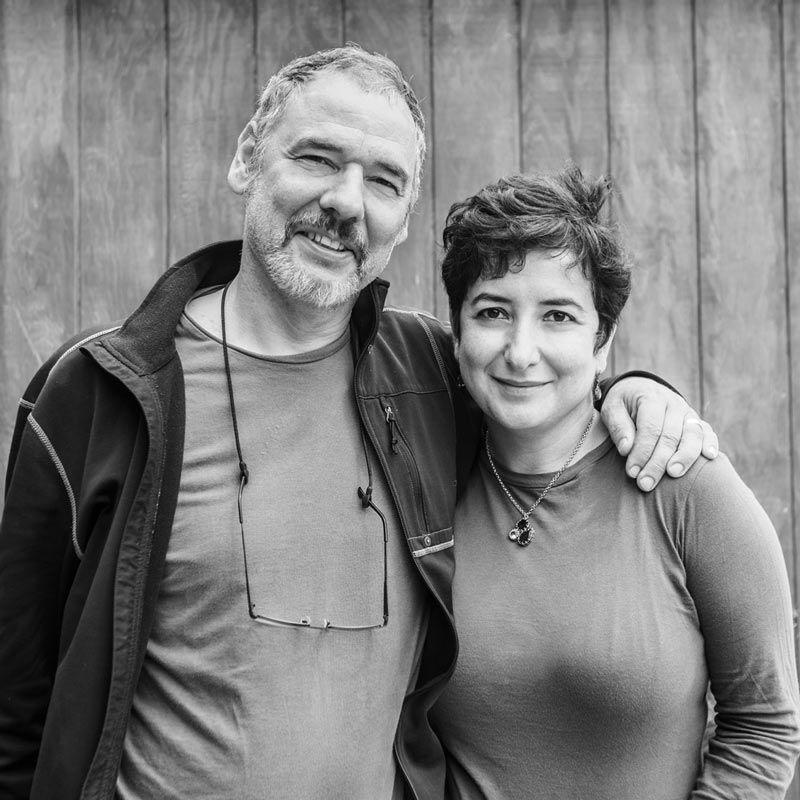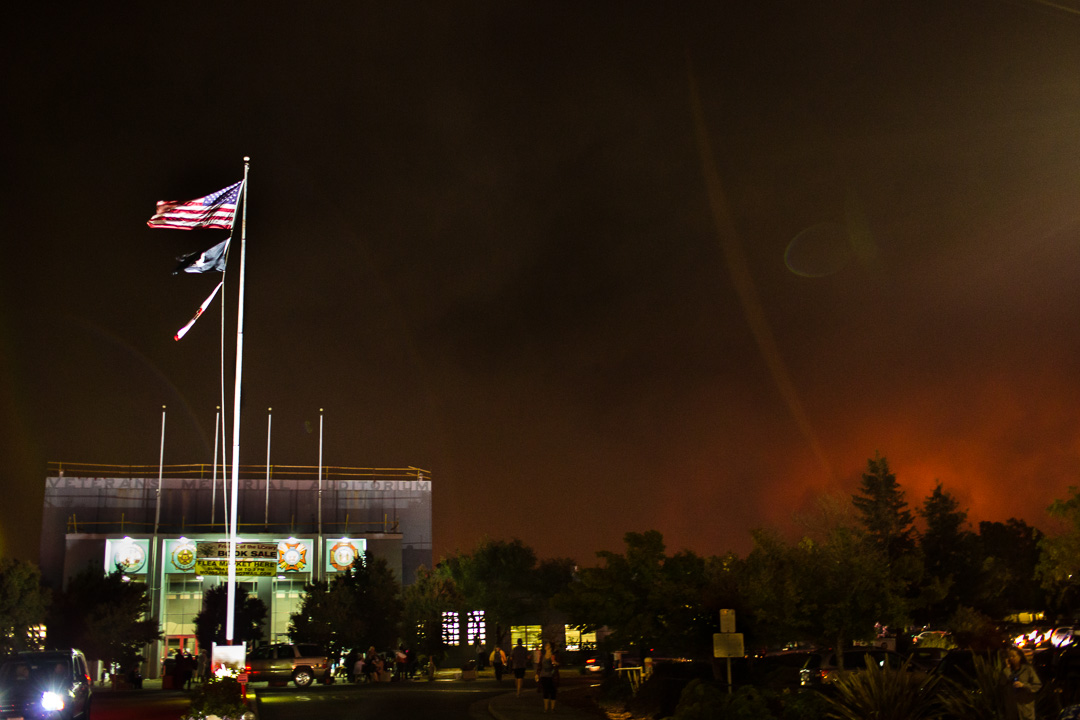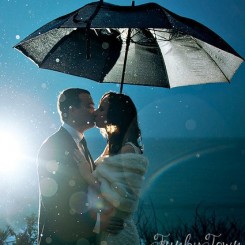Are You Ready For The Big One?
Posted by Marcel & Meher Siegle Photography on December 10th 2017
Photographer Contact Information
San Francisco, California Photographer
From hundred year floods, (which now seem to happen every other year), to raging wild fires in the West, devastating hurricanes in the East and super tornadoes in the Heartland, we have seen a substantial uptick in natural disasters in the last two decades. Only two months ago a natural disaster personally affected my family. My wife, daughter and I had to evacuate in the middle of the night from a fast approaching wildfire. As I write this today, fires are raging in Southern California and upending people’s lives, and it is becoming more and more clear that these kind of extreme weather-related events are becoming a regular occurrence. Unlike hurricanes or other storms, wildfires and earthquakes do not come with a warning, they are unpredictable, and from one moment to the next your life can change forever.
When we moved to the wine country from San Francisco ten years ago we were quite aware of the fire dangers in this more forested region, but nothing prepared us for the fire storm that ravaged our beautiful wine country. We did however have a plan in place, which during the night of the fires helped us to evacuate efficiently. You can read more about our ordeal, the good and the bad, and see some pictures at: http://marcelsieglephoto.com/2017/10/santa-rosa-fire/
What struck us, when talking to people, was how much they regretted not saving certain photos. In fact most people who had time to evacuate, made sure they took their family photos andalbums. As wedding and portrait photographers we are in a very special field where we are the keepers of our clients most precious memories. We take our responsibility seriously and safeguard not only our own family’s heirlooms and photographs, but others as well.
So here are some tips and thoughts that might prepare you in case one of these terrible suddenevents hits your neck of the woods. This is of course not only for photographers.
1) Backup your work and all your business files and keep backups and different locations. We always have a bag with backup drives in one of our cars, preferably the one we are using. This is to ensure we don’t loose our work in case we are not at home during a disaster. We also have backups online, but they are mostly jpegs and not raw files. We use small 1-2 TB USB 3 portable hard drives.
2) Gauge how much time you have to evacuate. You and your family’s safety is of utmost importance. Assess the situation and make decisions appropriately. For example when we were evacuating we had some time, but many of our friends did not and had to flee just taking what they could grab. In a stressful situation, you may not be thinking clearly, so it it a good idea to think things through beforehand, before any emergency.
3) Keep your camera bags packed —always. You really do not want to fiddle with packing camera bags during an evacuation event.
4) Know your evacuation routes. We thought we had only two ways out, but found out later that there are other gated dirt roads we did not know about that could have been accessed in case all routes were blocked.
5) Have a flashlight handy. This might sound trivial, but if a major disaster hits at night, you most certainly will experience a power outage. Headlamps are best. This was actually the first thing I gave to my family the night of the fires even though we hadn’t lost power.
6) Have all your important documents, passports, social security card, birth certificates in one place ready to go. We keep our document folders in a large plastic bag, not very elegant but easy to grab and throw into a suitcase.
7) Make a mental list of priorities. From most important to less important items. This way you take the most important things first and can take additional items if time allows it.
8) If you are on medications, remember to take them or have some already packed in your handbag/camera bag, or even a pill box. This was an issue for some of our friends who evacuated thinking they’d be back home very soon.
9) If you have more than one vehicle, but not enough drivers, determine which vehicle/s you are going to take and which ones you might have to leave behind.
10) Always have some cash on hand or keep emergency cash with your papers. Keep in mind that with major events like this ATMs may not work as power and communication systems get disrupted.
11) Have enough gas in your car at all times. This might sound trivial, but we found out that many gas stations did not work.
12) Be aware that you are very vulnerable when you are evacuating. While our community really came together during the fires and in general is very safe, there were some instances of people being robbed while evacuating.
13) Plan on where you could go it you are evacuated. It’s good to have that conversation with friends and family beforehand. We had to evacuate twice, once from our home and then again from the place we evacuated to.
14) Have a clothing bag. Don’t try to take all your clothes, just enough to get you through a week or so. While being evacuated we did laundry almost every day. Clothing can be replaced/bought easily.
15) Know your neighbors and talk to them about potential threats to your neighborhood. If you live in an area prone to wild fires, have a neighborhood emergency alert system. The night of the fires we were awoken by our neighbor, but since we live in a very forested area we also have a neighborhood emergency phone alert system, which helped alert people. The local first responders where so overwhelmed and the fires were so fast that many people who did not have a neighborhood alert system in place never received a warning. They only found out about the fires when it was almost too late. Some lives could have been saved if they had had such a system.
16) Be aware that there is a chance you might lose communications. We lost cell phone and internet for a few days, and messages came through days later at times. Texting seemed to be a good option for us.
17) Be aware that an event like this will impact your business. We had to postpone a few commercial shoots, but weddings of course are different and as the saying goes the show must go on. So try to communicate with your clients as soon as possible and reassure them that you are alright and that you are prepared.
18) While being evacuated take care of yourself and your family. Don’t over-exert yourself. The stress, smoke and uncertainty can be bad for your health. Don’t watch national news and keep it to the local news. We listened mostly to our local radio station.
19) Do a practice run. Full disclosure, we never did, but in hindsight it might not be a bad idea.
As photographers it is important that we start factoring in the unexpected, besides your memory card crashing ;-) I hope you found this article useful. Please feel free to comment or ask questions and add your own tips below in the comment field.
Photographer Contact Information
San Francisco, California Photographer

Photographer Bio
Marcel Siegle, Marcel and Meher Photography, San Francisco Bay Area
Marcel Siegle is one half of Marcel and Meher Photography a boutique wedding photography studio based in the San Francisco Bay Area, specializing in wedding photojournalism and portraiture. Marcel and Meher have won multiple awards including over ninety awards from the ISPWP, Junebug’s “Best of the Best Awards” and the WPJA. Their work has been featured in several wedding magazines, as well as wedding blogs. Marcel and Meher met in photography school. They have been married for 24 years and have beein shooting weddings together for 14 years.
When not photographing weddings or portraiture, Marcel is an self proclaimed “Fly Fishing Junkie” who has blended his two passions and photographed for some national and international publications. You can check out his fly fishing work here and his commercial work here.








